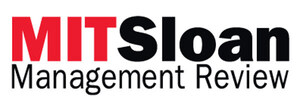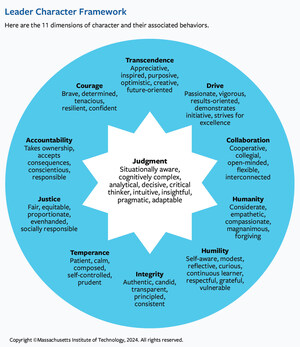New MIT Sloan Management Review study finds that only 26% of senior managers strongly agree that their key performance indicators are aligned with their organization's strategic objectives
Survey also finds that the customer is an important focus for key performance indicators (KPIs): When asked to list their top three KPIs (excluding gross revenue), far more survey respondents named some type of customer-focused KPI than one from any other category.
CAMBRIDGE, Mass., June 26, 2018 /PRNewswire/ -- A new global study on the state of key performance indicators, released today by MIT Sloan Management Review (SMR), suggests that a high number of executives underutilize KPIs as a leadership tool. Despite having access to magnitudes more information, nearly 30% of surveyed leaders don't use KPIs to drive change in their organizations. The study, "Leading with Next-Generation Key Performance Indicators," delves into why some business leaders are rethinking how they use KPIs to lead and manage the enterprise.
The study is based on a global survey of more than 3,200 business executives, managers, and analysts from organizations around the world, and 18 interviews with executives and thinkers on the topic.
"KPIs should be the most important data and analytics that an organization has," said Michael Schrage, a research fellow at the MIT Sloan School's Center for Digital Business and a coauthor of the report. "But our research indicates that KPIs are mismanaged and undervalued."
There is one notable exception to the reported misuse of KPIs: The study finds that many companies are using KPIs to understand customers in a more holistic way. Over 70% of respondents report that their organizations currently have functional KPIs for customer segmentation, and 63% of respondents agree that they are using KPIs to develop a single, integrated view of the customer. Several of those business leaders interviewed for the report discussed their efforts to use KPIs to understand "the customer journey," encompassing the many touchpoints through which customers interact with brands today.
"Using KPIs to create an integrated view of the customer requires a huge adjustment in how organizations collaborate, and the kinds of data they collect and use," said David Kiron, executive editor at MIT SMR and a coauthor of the report.
The study also identified several pivotal principles used by those companies that have been successful at creating alignment around a shared set of KPIs. The researchers created an index built on the idea of KPI alignment, and found that the best aligned — Measurement Leaders — shared several key characteristics. They:
- Use KPIs to lead, as well as manage, the enterprise.
- Pursue a holistic, integrated view of the customer. More than 80% of Measurement Leaders affirm that their functional KPIs help their function develop a single, integrated view of their target customer. That figure drops to slightly below 25% for Measurement Challenged organizations.
- See KPIs as data sets for machine learning. Both survey results and interviews suggest that KPIs are now being thought of as data inputs for machine learning, not just as analytic outputs for performance review and planning.
- Insist on the ability to digitally drill down to KPI components. Rating their agreement with the statement, "I can easily drill down to see the underlying data or analytic components that are aggregated into my KPIs," more than 80% of Measurement Leaders strongly agreed or agreed with that statement; the percentage was close to 45% for the Measurement Capable organization, and dropped to below 10% for the Measurement Challenged group.
- Share trusted KPI data. Measurement Leaders are twice as likely as the Measurement Challenged to monitor or have access to other C-suite or functional leadership KPIs.
- Aim for "KPI parsimony." When asked how many of the KPIs they oversee demand most of their attention, a majority of survey respondents chose either the top two or three, or the top 20%.
The research indicates that KPIs are strategically, culturally, and operationally entwined with how leaders of data-driven organizations define success. This is especially true for organizations intent on being measurably customer focused and/or customer-centric. As companies hone their data and analytics capabilities, KPIs will become even more powerful and persuasive mechanisms for defining economic value and organizational accountability. By contrast, organizations ambivalent about data-driven analytics and algorithmic innovation will continue to (merely) use KPIs rather than commit to them.
To read the full report, please visit MIT Sloan Management Review.
About MIT Sloan Management Review
A media company based at the MIT Sloan School of Management, MIT Sloan Management Review's mission is to lead the conversation among research scholars, business executives, and other thought leaders about advances in management practice, especially those shaped by technology, that are transforming how people lead and innovate. MIT Sloan Management Review captures for thoughtful managers the creativity, excitement, and opportunity generated by rapid organizational, technological, and societal change.
Contact
Deb Gallagher
MIT Sloan Management Review
+1-617-768-7417
[email protected]
SOURCE MIT Sloan Management Review
Related Links
WANT YOUR COMPANY'S NEWS FEATURED ON PRNEWSWIRE.COM?
Newsrooms &
Influencers
Digital Media
Outlets
Journalists
Opted In






Share this article